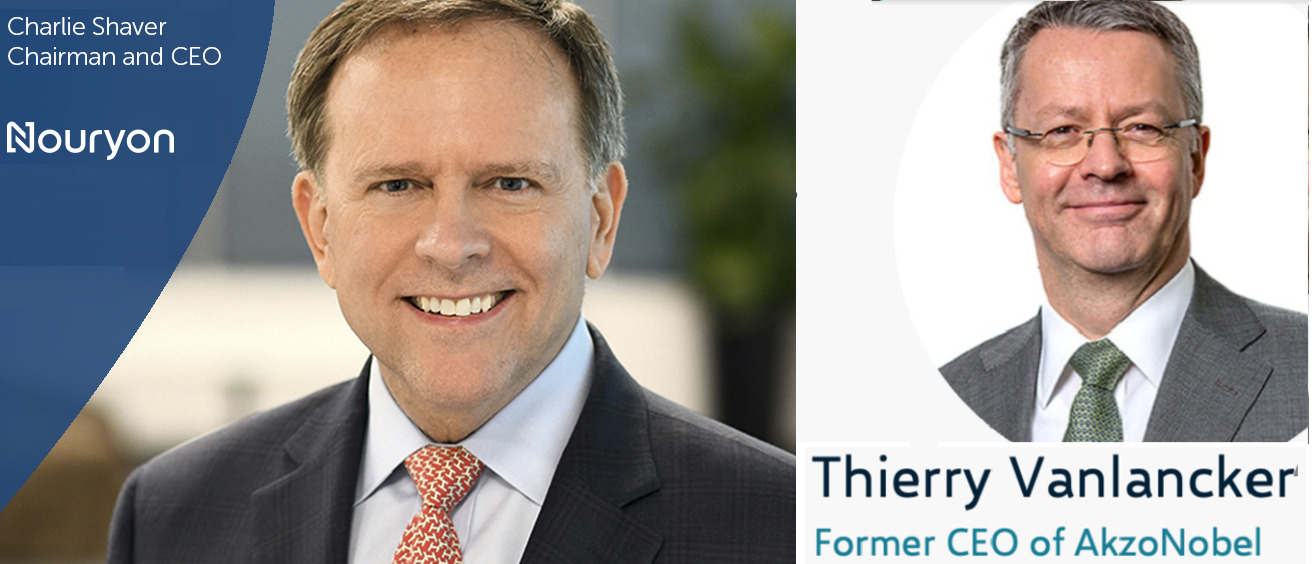
LISBON, Portugal – A criminal case has commenced against Nouryon Specialty Chemicals BV, Akzo Nobel NV, The Boeing Company, Airbus Portugal SA, and their “representatives” for patent infringement and multiple violations of the Portuguese Industrial Property Law. The case was filed in the Ministry of Internal Administration in Lisbon under Criminal Complaint # file (NPP: 510345/2023) and Criminal Procedure # NUIPC 000965/23.4PGCSC.

This action follows a lawsuit by patent owner Xene Corporation filed in May 2022 against Dutch composite global giant Nouryon BV. The lawsuit, filed in U.S. District Court for the Eastern District of New York, case number CV-22-2850 alleges Nouryon used Xenecore, Xene’s patented foam-based carbon composite material and manufacturing process, to make parts for 1,000 other companies, referred to in court documents as “John Does #1 to #1003.”
Xene is seeking $6.3 billion in damages from Nouryon and the other companies. Amongst the additional named Joe Doe defendants are Boeing, Airbus, General Electric, Siemens, Vestas and automobile makers in Europe.
The Portugal criminal complaint accuses Nouryon, Akzo Nobel, and their representatives of multiple violations of the Industrial Property Code. The complaint alleges that the accused willfully and deliberately infringed the patent rights of the complainant, with actual knowledge of the patents.
According to complainant, Akzo Nobel also, by false pretense, obtained trade secrets and comprehensive instructions from Xene for the manufacturing of airplane components, wind turbine blades, automotive parts, and marine components, all of which are now integrated into products in Portugal. The chemical business units of the Akzo Nobel group then transferred the data and information to brand new Nouryon entities and became part of the Nouryon group. Complainant was then prevented from further communication.
Media releases report that the specialty chemicals business of Akzo Nobel NV was transferred to Nouryon Speciality Chemicals BV for €10 Billion Euros in 2018.
In accordance with Article 347 Industrial Property Code of Portugal, the criminal court could immediately enjoin further infringing activity and order the accused companies to turn over the profits from the sale of the relevant business in 2018.
Under Article 11 of the Penal Code, the officers and directors of the companies could be personally liable, including Nouryon’s Charlie Shaver and Akzo Nobel’s Thierry Vanlancker, who could face up to three years in prison, and the liabilities are not extinguished by merger.

In the New York case, Nouryon has filed a motion to dismiss the lawsuit due to an alleged lack of jurisdiction and another motion to dismiss based on Xene’s supposed failure to show evidence of Nouryon’s direct patent infringement.
On July 5, 2023, Xene filed a brief stating Nouryon encourages companies like Boeing, General Electric, and Evonik to carry out the Xenecore process.
On Sept 5, 2023, a criminal patent infringement prosecution was commenced in South Korea (criminal file # 20234007) against Loic Porcheron and Eric John, the executives of Airbus Korea and Boeing Korea LLC, who could face up to seven years imprisonment.
In 2014, Nouryon agreed to distribute and sell the Xenecore material and process to customers for both companies for mutual monetary benefit. However, Xene alleges Nouryon did so without sharing the profits with Xene and continues to sell the Xenecore material and process without authority to a host of its customers.
Noryoun has filed a motion to dismiss the lawsuit due to an alleged lack of jurisdiction and another motion to dismiss based on Xene’s supposed failure to show evidence of Noryoun’s direct patent infringement.
The court documents Xene filed reference a video showing how microspheres are used in the manufacturing of Airbus parts.
The company is seeking cross-border injunctions and criminal investigations in 25 countries in Europe, Asia, and Central America against Nouryon, and Akzo Nobel and their users: Advance Blast & Ballistic Systems Ltd, Aerospace Corp., AgustaWestland , Airbus , Alstom Transport Technologies, Apple Inc., Audi, Backman Sailboatsa, BAE Systems, Bell Helicopter Textron, Bell Helicopter Textron, Beta Air LLC, Bombardier, Commercial Aircraft Corp of China (COMAC), Continental Reifen Deutschland GmbH, Delta Wheels LLC, Deutsche Bahn AE-3 Train, commissioned by Al, DeWind Europe, Dronamics (Black Swan), General Atomics, General Electric Co. , Glasair Aviation, Hyundai Motor Company, Lamborghini, LM Wind Power AS, Lockheed Martin, Mercedes Benz, Northrop Grumman, Ocqueteau, Raytheon , Renault, Renault/Nissan Motor, Rolls Royce, Russian Railways, Safran Aircraft Engines, Senvion SE/Siemens Gamesa, Siemens Gamesa, Siemens Mobility GmbH, Space X, Toyota Motor Europe, Umoe Mandal, Vestas Wind Systems AS, Vetsas Wind, Volkswagen, Volvo, Wing Aviation/X Development LLC , Yokohama Rubber Co Ltd, who are allegedly infringing on the patents using Akzo Nobel and Nouryon products.
Xene’s European counsel estimated damages in Europe to be €1.2 Billion Euros. Xene is seeking to commence actions in Austria, Belgium, Denmark, Finland, France, Germany, Greece, Ireland, Italy, Luxembourg, Monaco, Norway, Portugal, Spain, Sweden, Switzerland, The Netherlands, United Kingdom, Turkey, Iceland, Poland, Japan, China and Mexico.
Xene began its business producing carbon fiber tennis rackets. It then expanded the use of its technology into other applications, including drag-based wind turbine blades called the Fanturbine. Xene claims the Fanturbine captures exponentially more wind energy than traditionally shaped aero blades. A story on the Fanturbine was featured in the July 2023 edition of Composites World Magazine.
According to a recent study, 100-meter fan blades can extract more than 1 Gigawatt of energy from the wind, and a 30-blade drag array can capture 3 Gigawatts of energy. The study shows that wind energy available for extraction is more than 20 million times that of solar per square meter of real estate, making it the best solution for climate change. The report can be downloaded here.
The study follows a white paper by aeronautics professor Paulo Abdala which demonstrated that by employing drag over lift, 14-megawatt turbines could output 1.4 Gigawatts of energy — 100 times more than conventional “aerofoil” blades, prevalent for the past century due to physicist Albert Betz, whose “limit” is widely misperceived according to the research.